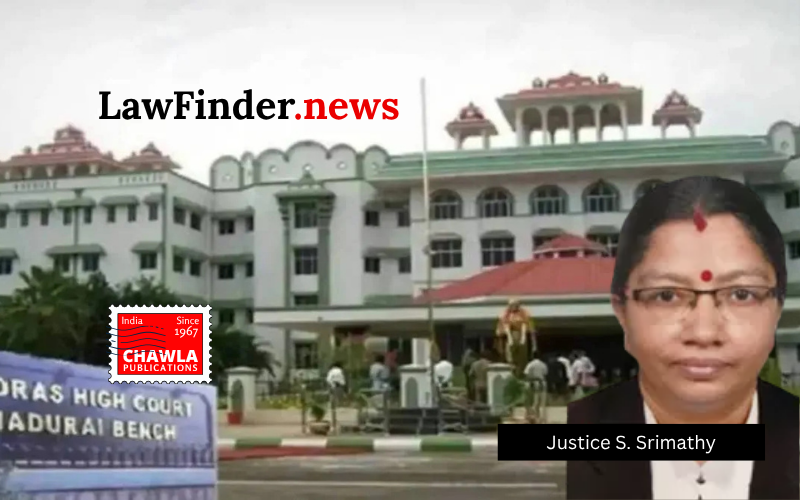Confession to Police Officers Deemed Inadmissible; Court Emphasizes Need for Substantial Evidence and Prolonged Incarceration
Madurai, 25 September 2025 - In a significant ruling, the Madurai Bench of the Madras High Court has granted bail to Krishnan, the petitioner in a high-profile Narcotic Drugs and Psychotropic Substances (NDPS) case, emphasizing the lack of admissible evidence and prolonged incarceration as key factors in the decision. This ruling, delivered by Justice S. Srimathy, scrutinizes the admissibility of confession statements made to police officers under Section 67 of the NDPS Act, citing recent precedent from the Supreme Court case Tofan Singh v. State of Tamil Nadu.
Krishnan, who was arrested on 29 October 2024 for possession of 1.100 kg of Hashish oil, a commercial quantity under the NDPS Act, has been in judicial custody for nearly a year. The prosecution's case primarily rested on the confession statements from co-accused, which the court held inadmissible under Section 25 of the Indian Evidence Act, reaffirming the Supreme Court's stance that such confessions to police officers cannot be used to convict the accused.
The court recognized the gravity of offenses involving commercial quantities under Section 37 of the NDPS Act but emphasized the necessity of "reasonable grounds" to believe the accused is not guilty, a threshold that requires more than prima facie evidence. The lack of substantial material evidence other than the inadmissible confession, coupled with Krishnan's clean record of no prior similar offenses, led the court to determine that he is not likely to commit any offense while on bail.
Justice Srimathy also considered the duration of Krishnan's custody, noting that the trial is still in its initial stages despite the charge sheet being filed within the statutory period. The court ruled that prolonged incarceration without trial can be a factor for granting bail under strict conditions.
Krishnan is ordered to be released on bail, subject to conditions including the execution of a bond for Rs.10,000, regular reporting to the police, and strict non-tampering of evidence or witnesses. The court warned that any breach of these conditions would result in appropriate legal action.
This ruling highlights the judiciary's careful balancing act between enforcing strict drug laws and ensuring fair legal processes, especially concerning evidence admissibility and individual rights during prolonged detention. It underscores the importance of substantial evidence in criminal proceedings, particularly in cases under stringent laws like the NDPS Act.
Bottom Line:
NDPS Act - Bail application for commercial quantity - Confession statement made to police officers under Section 67 of NDPS Act held inadmissible under Section 25 of the Indian Evidence Act - Reasonable grounds to believe the accused is not guilty must exist beyond prima facie grounds - Bail granted considering lack of admissible evidence and prolonged incarceration.
Statutory provision(s): Narcotic Drugs and Psychotropic Substances Act, 1985 Sections 37(1)(b), 8(c), 20(b)(ii)(C), 29(1), 27A, 25; Indian Evidence Act, 1872 Section 25; Bharatiya Nagarik Suraksha Sanhita, 2023 Section 269
Krishnan v. State of Tamil Nadu, (Madras)(Madurai Bench) : Law Finder Doc Id # 2791619




